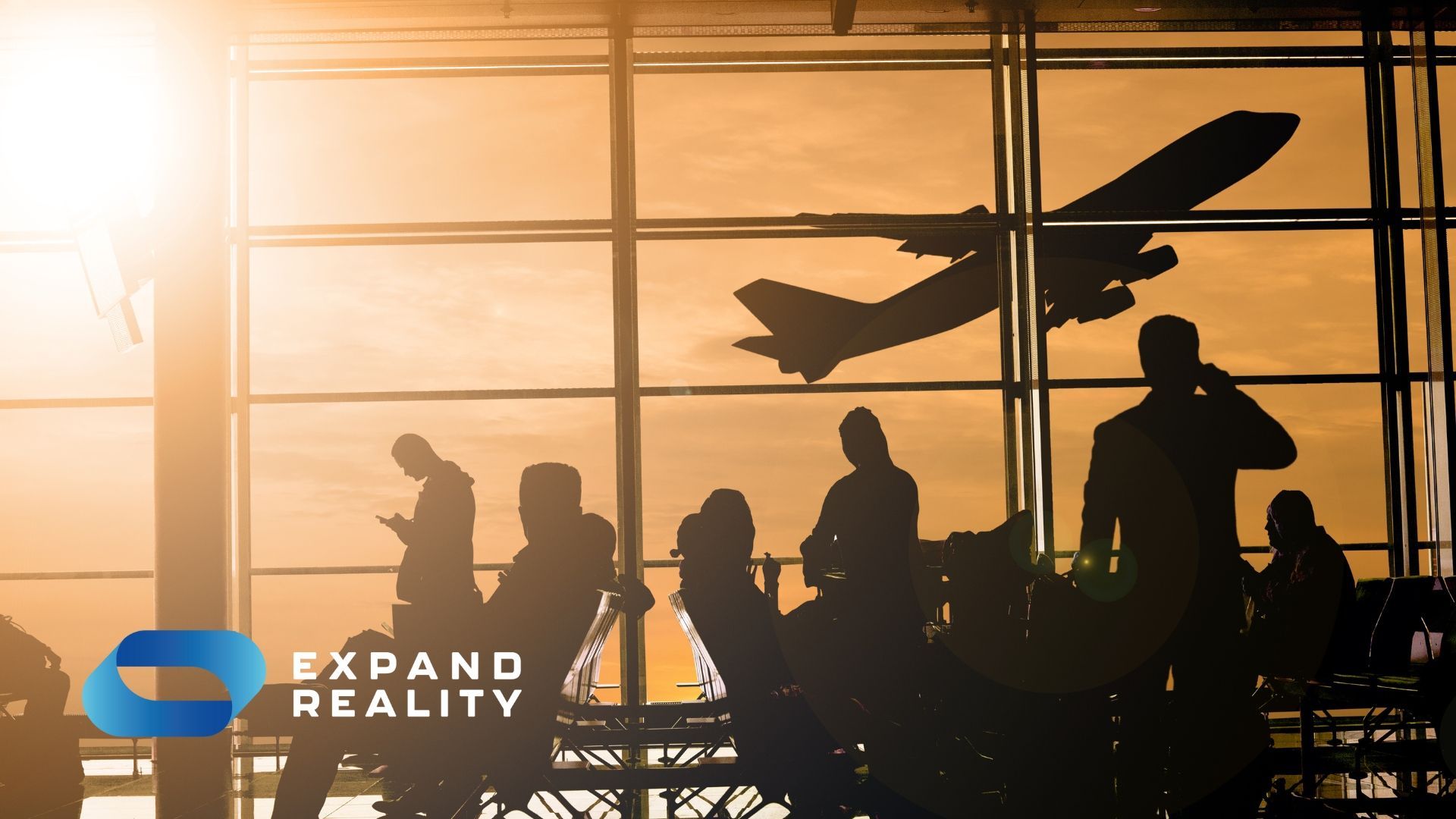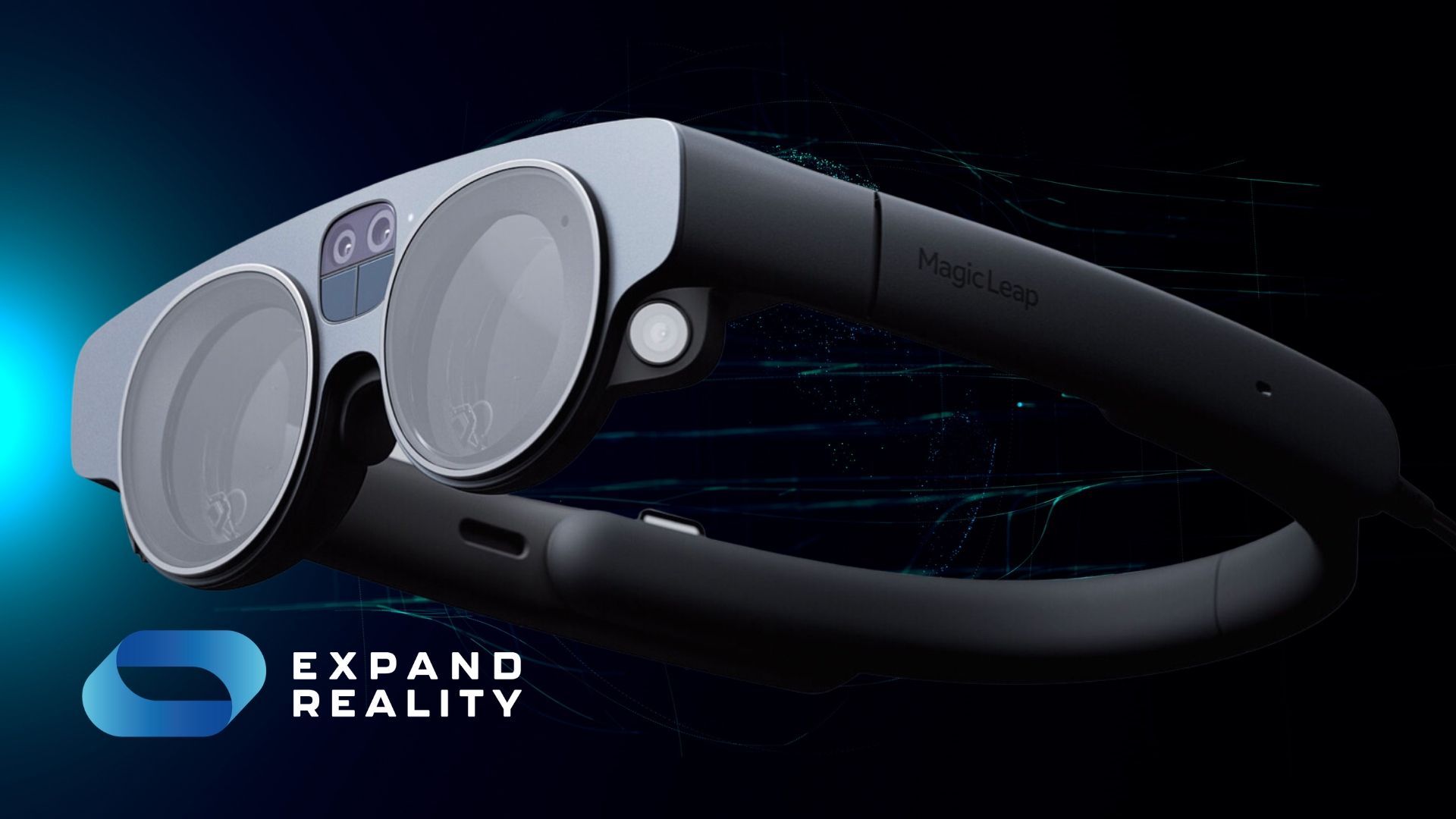hello@simplyvideo.io
5 innovative ways travel companies are using XR
Discover 5 innovative ways travel companies are using XR technology to revolutionise the customer experience and reshape the future of travel.

As technology advances, travel companies are finding new and innovative ways to enhance the customer experience using XR technology.
XR (inclusive of virtual reality, augmented reality, and mixed reality), has the potential to transform the travel industry by allowing customers to experience destinations in a more immersive and engaging way.
The sudden influx of XR use cases in the travel industry comes as no surprise, considering the prolonged stall of the travel industry in 2020 that left many workers and avid explorers itching for adventure.
This blog will explore five innovative ways travel companies are using XR to provide immersive and engaging experiences for their customers. We'll cover what the technology has achieved in the sector so far, as well as where it is headed.
The Emirates VR Experience
Talk about "try before you fly".
Dubai-based airline Emirates is known for its luxurious customer experience – and its use of XR technology takes that to the next level. Emirates has created a virtual reality experience that allows customers to preview the airline's first-class cabins before booking a flight.
The experience takes customers on a virtual tour of the cabin, showcasing the private suites, the onboard lounge and the shower spa. It's designed to help customers make informed decisions about their travel choices, manage their expectations and understand exactly where their money is going.
By giving customers a realistic preview of the cabin, Emirates may be hoping to increase customer satisfaction and reduce the number of complaints related to unexpected features or configurations.
VisitBritain's AR app
It is a common misconception that technology can only infringe on our enjoyment and experiences of heritage and history. But this couldn't be further from the truth. Technology and history can work harmoniously to create a completely unique and memorable experience for tourists all over the world.
England's Historic Cities – a partnership of 16 historic destinations across the UK – has developed an augmented reality app that enhances the visitor experience by providing interactive information about destinations.
The app, called
England Originals, allows users to conjure up 3D models of historic cities and listen to short audio stories about key attractions. Additionally, they can use the app to view augmented reality "portals" within the destination, enjoying glimpses into locked rooms and other off-limit locations.
It's an awe-inspiring way of enhancing an educational walk through a travel destination (and all without paying for a guided tour, may we add).
By providing interactive and immersive content, England's Historic Cities can increase customers' understanding and appreciation of their chosen destination. They may experience things and learn informational tidbits they might have otherwise glossed over.
We can imagine this project will contribute to the word-of-mouth marketing of both England's Historic Cities and the destinations they're hoping to promote.
Royal Caribbean's VR dining experience
Eating with your eyes is usually considered a bad thing. But in this case, we'd say it's a pretty smart way of doing things.
The cruise line Royal Caribbean created a virtual reality dining experience that added a whole new layer to fine dining at sea.
The experience involved diners wearing a virtual reality headset for the duration of a three-course meal. Each dish was accompanied by its own unique VR visuals that aimed to wow the viewer and, in turn, enhance their senses.
Eating colourful orbs in a VR metaverse has never seemed so appetising.
Although this experience was part of Royal Caribbean's own digital transformation, it has been shelved for the time being. The cruising giant is now setting sail for even bigger XR ventures, which will offer unique experiences to hungry travellers.
We can't wait to see what new innovations they're cooking up.
National Geographic: presenting nature in a new way
National Geographic has partnered with VR content creators to develop
Explore VR, an immersive app that takes travellers to some of the world's most awe-inspiring locations. Through VR headsets, users can scale virtual peaks, dodge huge icebergs and witness breathtaking wildlife encounters.
These VR expeditions not only offer extraordinary experiences to travellers but also raise awareness about conservation and the importance of protecting our planet.
By leveraging XR technology, National Geographic continues to transform the way people engage with and appreciate the natural world.
The Marriott Teleporter
The Marriott Teleporter, a project by Marriott Hotels, looked to revolutionise the concept of virtual travel. Using advanced virtual reality technology, the Teleporter allowed users to experience iconic destinations around the world without leaving the hotel premises.
The Teleporter, which looked a little like a souped-up phone booth, offered immersive journeys that transports guests to a choice of two locations – a black sand beach in Maui or the top of a London skyscraper.
Launched in 2014, the project was quite remarkable at the time. It provided an accessible way for travellers to experience different destinations, broadening their horizons and sparking their wanderlust.
This, of course, can only act as a positive for Marriott Hotels. It currently has more than 8,500 properties worldwide – including one that's just over the river from that London skyscraper.
The future of travel
As XR technology continues to evolve, we can expect even more exciting and innovative applications in the travel industry. From virtual tours of landmarks and cultural sites to immersive experiences in remote locations, XR has the potential to reshape the way we travel and experience our planet.
In a world where physical travel may face limitations or challenges, XR offers a bridge to exploration and discovery, connecting people to places in ways that were once unimaginable. As travel companies continue to harness the power of XR, the future of travel is poised to become even more immersive, engaging and accessible for all.
Expand Reality is a specialist retailer of augmented and assisted reality devices. Want to explore the future of industry? You can
buy XR today in our online store.

Contact Us
Connect global teams. Collaborate with remote experts. Streamline processes and unlock cost savings with industry-ready extended reality technology.
Contact Info
hello@expandreality.io
Gemini Business Park
Sheepscar Way
Leeds
LS7 3JB
All Rights Reserved | Expand Reality







